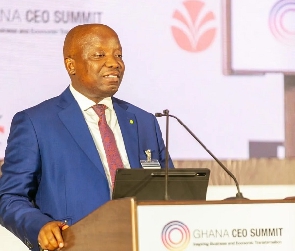Country Managing Partner for Deloitte, Daniel Kwadwo Owusu, has outlined a number of recommendations ahead of government’s presentation of the 2032 mid-year budget review on July 25.
According to him, government must allow businesses and the financial sector to carry forward losses recorded from the Domestic Debt Exchange Programme for tax purposes, covering the next five years compared to the three-year period as captured in the 2022 budget.
Addressing participants at the 2023 Deloitte Economic Dialogue: Pre Mid-Year Budget Discussion Daniel Owusu said, “sustainable economy recovery should be based on locally initiated flagship programmes as the IMF has underscored that the achievement of our recovery hinges on fostering collaboration”
“…To safeguard progress achieved, it is important for economic recovery and growth agenda to be driven through these locally initiated programmes such as the One-District One-Factory, Planting for Food and Jobs, Ghana CARES, YouStart which must be sustained for economic recovery,” he explained.
Daniel Owusu further added that these growth-focused initiatives, when well implemented, will empower local industries and draw upon the expertise of diverse local technocrats, academics and professionals across various sectors of the economy.
Touching on how government can ensure long-term growth beyond the current IMF programme, the Deloitte Country Managing Partner advocated for deliberate efforts in the development of non-traditional sectors.
“Promoting continuous collaboration between government and the private sector is essential in fostering growth and competitiveness in the economy while ensuring emphasizes should be placed on positioning these sectors to leverage on the opportunities presented by the Africa Continental Free Trade Area for regional market expansion,” he added.
MA/NOQ
Business News of Thursday, 20 July 2023
Source: www.ghanaweb.com

















